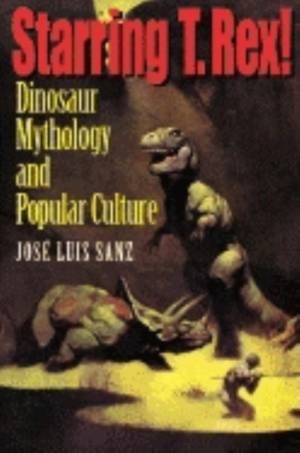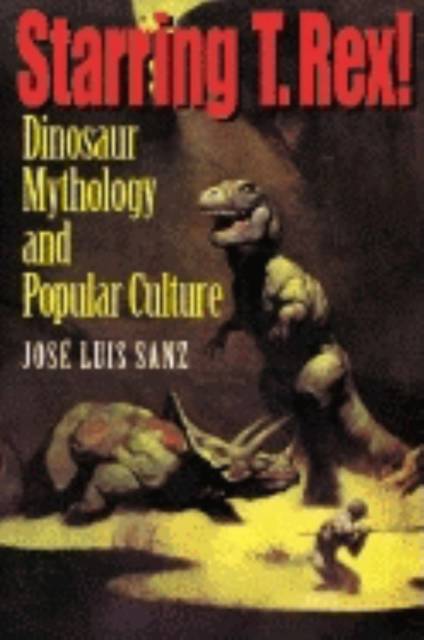
- Retrait gratuit dans votre magasin Club
- 7.000.000 titres dans notre catalogue
- Payer en toute sécurité
- Toujours un magasin près de chez vous
- Retrait gratuit dans votre magasin Club
- 7.000.000 titres dans notre catalogue
- Payer en toute sécurité
- Toujours un magasin près de chez vous
Description
In some cases, scientific research into the space-time continuum may have [unexpected] consequences . . . as occurs in Isaac Asimov's short story "'A Statue for Daddy.' In this tale . . . two scientists . . . recover 14 dinosaur eggs. The eggs are carefully incubated, and they hatch bipedal dinosaurs about the same size as a medium-sized dog. One of them is accidentally electrocuted, and the scientists discover that their meat is truly exquisite. They become fabulously rich rearing and marketing dinosaur meat under the name of 'dinochicken.'"
Ever since the discovery of the first fossil remains in the 19th century, dinosaurs have captured the imaginations of scientists and inspired writers, artists, and filmmakers. Dinosaurs, and legends about them are firmly entrenched in popular culture, where scientific information and our interest in the life of the past most often meet. Starring T. Rex! considers dinosaurs as a cultural phenomenon, seen as the interaction of three factors--paleontological discoveries, the cultural interest these discoveries awaken, and the possibilities they offer for commercial exploitation. José Luis Sanz explains that the knowledge generated by paleontologists enters popular culture at a mythological level and that the mass communication media (for example, science fiction literature, comic books, television, and movies) are the vehicles that link science and its reflection in culture.
Sanz first analyzes the historical origins of the dinosaur myth in modern society. He then considers the manner in which information drawn from scientific study enters popular consciousness, discussing, among other things, the coexistence of men and dinosaurs, what dinosaurs looked like, extinction, the presence of dinosaurs in fantasy stories, and the relationship between dinosaurs and dragons.
Spécifications
Parties prenantes
- Auteur(s) :
- Editeur:
Contenu
- Nombre de pages :
- 176
- Langue:
- Anglais
Caractéristiques
- EAN:
- 9780253215505
- Date de parution :
- 14-11-02
- Format:
- Livre broché
- Format numérique:
- Trade paperback (VS)
- Dimensions :
- 174 mm x 224 mm
- Poids :
- 290 g







